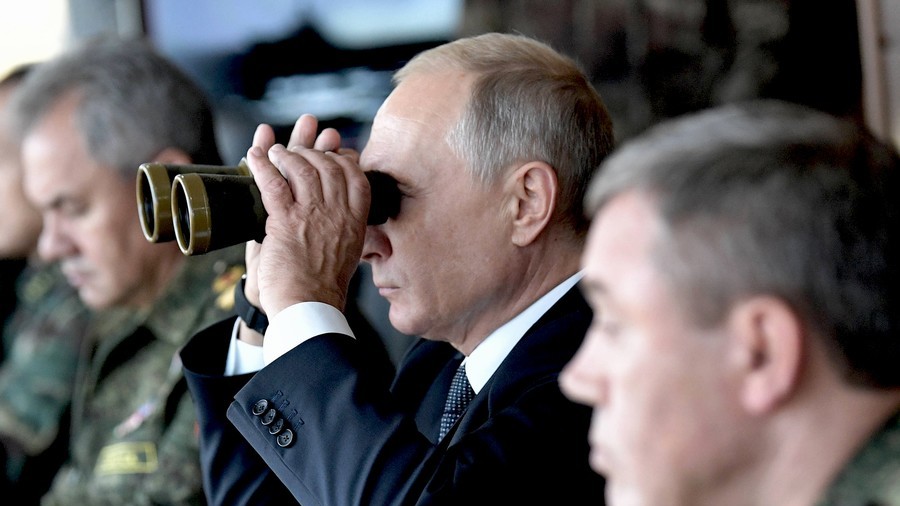NYT rolls out mammoth report on ‘Russian interference’ that fails to tell allegations from facts

A new take on the ‘Russia hacked the US election’ story by the Gray Lady herself may make some in the journalistic community cringe. It’s usually not considered correct to report allegations as facts, you see.
On Thursday the New York Times published a 10,000-word special report titled ‘A Plot to Subvert an Election: Unravelling the Russia Story So Far’. Written in a way that would make the late Tom Clancy proud, it summarizes the many aspects about alleged Russian interference in the 2016 presidential election.
The report has all the hallmarks of standard Russia scoop. Intellectuals will be pleased to see the name of Aleksandr Dugin in the section explaining why Russian President Vladimir Putin hates America and its freedom. The less-read are told about how he called the fall of the USSR the greatest geopolitical disaster of the previous century.
There is a lot of action montage going on. Here are “keyboard warriors granted the unusual privilege of real-world travel” to the US to lay the groundwork for a “virtual invasion”. In the next paragraph we read about Putin raging about Panama Papers exposing his personal friend as a secret billionaire. Next scene: Trump wistfully tweeting about becoming BFFs with Putin in the run up to The Miss Universe Pageant in Moscow.
(correcting previous tweet, i should have said "no evidence" instead of "nothing is proven")
— Aaron Maté (@aaronjmate) September 20, 2018
Only two times in the entire text the words ‘alleged’ and ‘allegation’ show up, a remarkable achievement for a story featuring plenty of allegations made by the US government in the form of indictments filed by the Robert Mueller investigation. But for the NYT, apparently, proving allegations in a court of law is not necessary when talking about this story.
Such writing is a serious breach of journalistic standards, believes investigative journalist Joe Lauria, who used to work for the Wall Street Journal.
“You always use the word ‘alleged’ when discussing whatever the government alleges about what someone else has done. When it has been proven in a court of law, than that is a conviction. But until this happened, it is not fact, it was not proven, it is not the truth. That’s an allegation. And that’s all we’ve got from the Mueller indictments,” he told RT.
As part of the narrative they wanted to build under the guise of "news," NYT needed someone on the left whom they could malign as defending leaks in the past while hypocritically condemning them as part of Trump/Russia. So they blatantly lied about my views to achieve that.



